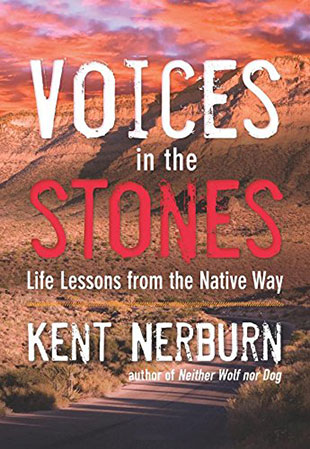"I am standing in a lonely field, far from the nearest road, in the open prairie country of northwestern Minnesota. Just beyond me, the Ojibwe man who brought me here is overseeing the reburial of the bone fragments of two young girls, maybe fourteen or fifteen years of age, that were unearthed by a farmer during an excavation on his land. . . . They are thought to have lived over a thousand years ago, members of a culture now faded into the mists of history. . . .
" 'It's hard,' the [Ojibwe] man said. 'These aren't just "remains" to me. These are people.'
"In the state's eyes, he was helping to fulfill a legal obligation mandated by federal law. But for him, this was far more. He was doing his best to give proper respect to husbands, wives, children, and elders whose bodies had been disturbed in their resting places by the onward push of modern civilization.
"But in his heart the task ran deeper still.
"He was providing peace to spirits – a notion not part of any job description or even any sense of moral propriety and obligation, but part of the reality for anyone, especially a Native person, who is alive to the mystery that lives beneath the practicalities of everyday life. . . .
"The girls we buried are anonymous. They will remain anonymous. They have no families to remember them, no parents to grieve for them. We cannot, and will not, know their names. The human beings they once were and the lives they once lived will be forever forgotten, despite our best efforts to honor their memories.
"But the dead are not so easily buried. Their laughter, as well as their bones, inhabits this soil.
"It is the Native way to acknowledge this truth.
"It is a deeper truth than we understand – deeper than a simple attachment to place, deeper even than the belief that the land where they were born was given them by the Creator.
"It is a belief – even an understanding – that in our death we return to the soil; that who we are, in body and in spirit, nourishes the plants that grow up to feed the animals that give their lives to feed our bodies, so that our children and the children of all the creatures that share this earth live inside of us, even as they live inside the trees and plants and animals around us.
"We are common kin, born of a common earth, far deeper and far richer than the movements of people and events that take place upon the surface of creation.
"That is why we feel the presence of ghosts when we stand on hallowed ground – the battlefield at Gettysburg, the hard stones of Dachau, the rocky promontory of Masada, the lonely hilltop at Wounded Knee.
"In those places the presence of the dead is so strong that it cannot be ignored.
"Yet these ghosts are everywhere, and that we do not hear them except as faint and distant echoes does not mean that they do not exist.
"Perhaps it would be too much if we could truly hear the deep voices of the world around us, and we would cover our ears in terror, like the deaf man who, hearing for the first time, covers his ears to block out the unbearable cacophony of life. Perhaps if every gully cried out to us with the laughing and clacking of stones, we would go insane.
"The hip bones of those girls sang in a tiny voice – sweet, pure, beyond our hearing. We do them no justice if we deny that song or think that it sings only a lament for a lost and defeated culture. Those girls are our ancestors, part of the earth that nourished us and gave us life.
"It is good that we were here to bear witness to their lives. We need to keep them alive in our hearts, even if we cannot hear the laughter in their voices or the soft and distant music of their song."
